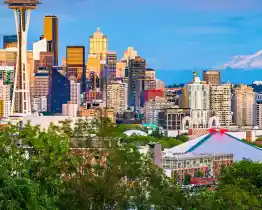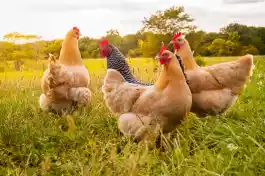Modal Header
- econews
- California
If there’s one thing environmentalists, farmers, restaurant owners and good old food lovers need to rally behind it’s regenerative agriculture.
Since industrial agriculture began in the 50’s the soil of California has been dramatically depleted. Tilling and over ploughing has led to nutrient loss, impacting the soil’s ability to replenish itself and releasing large amounts of carbon dioxide back into the atmosphere. As a result most farms today rely on man made fertilizers and pesticides which pose multiple threats to the environment and fail to offer long term solutions to the real problem at hand: the soil.
Scientists have shown that the foods we eat today contain less nutrients than they did a few decades ago and unless we start allowing the soil to recover and switch to greener practices the quality of our food and health will continue to suffer the consequences.
Smarter soil managing needs to be a priority and with valley temperatures predicted to rise between 3.5 and 6 degrees Fahrenheit by 2100, warmer winters and water shortages it’s time to start thinking more wisely. This is where regenerative agriculture can show us the way.
Why regenerative agriculture is the future
Regenerative agriculture is a system of farming principles and practices which draws from decades of scientific, applied research on how to increase biodiversity, enrich soils and improve watersheds. At the same time, it offers higher resilience to climate instability, increased yields and healthier conditions for farming and ranching communities.
The principle behind regenerative agriculture is to create an ecosystem that does not rely on outside input to grow food. To accomplish this, rather than growing one crop over vast areas of land, a wide variety of crops and plants are grown to create a diverse, interwoven ecosystem.
In contrast to industrial farming, regenerative agriculture actually pulls excess carbon out of the atmosphere and back into the ground, helping reverse current global trends of atmospheric accumulation. Additionally to this it absorbs more rainfall into the ground which reduces topsoil erosion. Not only does it provide us with nutrient rich and tastier foods but In the long term it can in fact decrease farmers expenses.
Regenerative farms in California
More and more regenerative farms and urban projects are emerging across the state and of these here are 3 regenerative farms which have already made a name for themselves:
1. Apricot Lane Farms in Moorpark is one of those farms that refuses to compromise the health of the land, its wildlife, farm crew or humane treatment of its livestock in growing their food. With a clear message to keep the care of the soil at the center of all they do, this farm is living proof of the beauty and transformation that can be created in the very core of California.
2. Full Belly Farm is a certified organic farm located in the Capay Valley of northern California. This farm is committed to fostering sustainability on all levels, from soil fertility to stable employment for farm workers. It comprises almost 400 acres where they grow 80 different crops in rotation along with products produced with the help of chickens, goats, sheep and cows. Full Belly creates a strong local food economy, providing year-round employment for 80 people while selling the bulk of their produce within a 120-mile radius of the farm.
3. Victoria Island Farms engages in no-till farming in the majority of its fields in Victoria and in 2019 installed over 1,500 Photovoltaic Solar Panels. Responsible land stewardship is a core value for the members of this farm which in their own words “pride themselves on doing things the right way, though this rarely means the easiest or most profitable way”. Quality, safety and responsibility come before profits in their list of priorities. The farm has purchased over 20 small islands surrounding Victoria as permanent wildlife habitat to aid in reversing carbon emissions and their 80 miles of deep water canals create additional areas to promote biodiversity.
Conclusion
Industrial farming feeds billions of people across the globe cheaply but comes at the expense of the soil, the environment and the general well being of all Earth’s inhabitants.
Conventional farmers are simply fulfilling market demand, it is consumers not farmers who can be the best agents of change.
If we want food that is grown in a healthy way and that also takes into consideration the needs of an ecosystem, we have to be willing to pay a little extra for food and support those who are looking out for the next generation.
DISCOVERCalifornia

Related Articles
Message
Thanks for signing up. Please confirm your email address, check your inbox and verify your email.

















